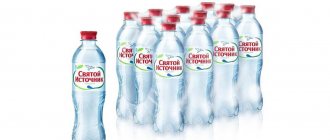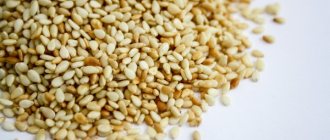How to lose weight without dieting
Let's figure out once and for all how to lose weight without dieting and is it even possible?
What is more important: calories, nutrition or food quality?
You know, you can gain kilograms by eating only cucumbers with chicken breast without salt, if you eat them in bulk, or you can lose weight without denying yourself your favorite treats - when losing weight quickly at home, it’s all about the difference in calories consumed and burned.
Any food contains calories and you can gain and lose weight from any food. But, of course, there are details.
For example, every half a kilo of carbohydrates in the body retains about one and a half liters of water. A whole charlatan trend is based on this, when, under various sauces, people cut down on carbohydrate consumption, lose weight by draining water, the reserves of which, of course, return with a change in diet.
And this is water, in any case, and not fat - people look the same. We read about this in “If you want to lose weight, don’t eat carbohydrates .
With such a diet, weight loss will occur even against the background of a calorie surplus, the only difference being that this is simply a loss of fluid and such a loss only works on the first 1.5-2 kg of this same water. This has nothing to do with fat, which means it cannot be an argument in favor of the quality of calories .
But there will always be a lady who will foam at the mouth to prove to you that cutting carbohydrates allows her to eat as much as she wants and not gain weight. And that carbohydrates are the main evil that makes you fat.
Poor thing, maybe it was ketosis that made her sick .
So again, we remind you that diets are based on very simple advice: “reduce or eliminate a food/macronutrient to lose weight.” Usually this means something high in calories, usually fatty, carbohydrate and sweet. In the style of “reduce fat to 30% of all calories. Or eat no more than 50 grams of carbohydrates per day.”
To explain the effect, these revolutionary nutritional methods and diets use all kinds of pseudo-physiology, talking about clean, proper nutrition (yep, Aryan food right), although everything is simple. If a food adds a lot of calories to your diet, remove it.
You will consume less and lose weight. This is not a magic of a special quality of calories, but a simple restriction of them .
Of course, by limiting fat to 30% or fat to 50 grams and below, a person automatically reduces calories and loses weight. Not because of the magical effect of having the right amount of fat/carbohydrates and their quality, but because you eat fewer calories in total. You just start eating a lot less without thinking about it.
A calorie is a unit of energy measurement, it is always the same. People seem to confuse it with weight. But it's the presence or absence of calories that matters for weight loss, so that's why 100 grams of celery is "better" than 100 grams of granola ( "13 Surprising Dishes and Foods That Have More Calories Than You Think" ).
Celery is larger in volume, high in fiber and water, but low in calories. And granola, for all its attractiveness and “fashionability,” is very nutritious and high in calories.
What to eat to lose weight
Do you understand everything? No? We knew it, let's take a look at what is important in food for weight loss, what other secrets of proper nutrition for proper weight loss you need to know and how to eat right to lose weight:
How many calories per day do you need to lose weight?
Protein
A sufficient amount of protein will always be more effective than a protein-free diet for the same calories: it protects muscles and allows you to lose more precisely due to fat. Any research comparing diets with large and small amounts of protein proves this to us.
People who consume protein in the required amount lose weight more efficiently with the same caloric content of food than those who do not get enough protein. Even if both groups lost the same amount of weight, people in the high-protein group lost more fat and less muscle.
We also already know that protein controls appetite much better than carbohydrates . It takes longer to digest and makes blood glucose levels stable.
Again, this is where low-carb When a person refuses carbohydrates and limits fats, he has no choice but to fill the missing calories with protein.
Protein is the second most important factor in proper nutrition after calories. But is the source of the remaining calories important when eating adequate protein?
Fats and carbohydrates
Under conditions of strict calorie control, you can change the amount of fats and carbohydrates in both directions, because it does not affect the speed of weight loss and the quality of the lost weight if they fit into your daily calorie intake. You can eat a lot of carbohydrates, or you can eat a little. It's the same with fats.
But there are, of course, nuances that would be impossible without them: the results can be influenced by the genetics and metabolism of a particular person. This is especially true for carbohydrates and insulin sensitivity.
People with poor insulin sensitivity lose weight worse on a high-carbohydrate diet for the same calories (we wrote about this in the article “If you want to lose weight, don’t eat carbohydrates” ).
The same applies to high-fat ketogenic diets. You can easily find those who lose weight faster on this diet. But it is also possible for those who lost all their muscle instead of fat on the keto diet, and achieved better results on carbohydrates.
With strict calorie control, the source of carbohydrates or fats does not matter either in the rate of weight loss or in the quality of weight lost and body composition.
So, what is our conclusion: if we control calories and eat enough protein (about 2 grams per kilo of weight when maintaining weight and up to 3 grams when dieting), the remaining calories can come from fat and carbohydrates in any ratio and from any source .
Results for the same nutritional value may vary from person to person. It's not about the quality of calories, but about genetics and metabolic characteristics. So, if you're being honest about your caloric intake, eating enough protein, but all your other foods are fatty or sugary, you'll still technically lose weight.
The problem is that most people are unable to control their hunger or appetite on this diet. They will overeat and will not be able to lose weight, or even gain weight.
It is clear that it is much easier to limit calories to fatty and sweet foods than vegetables and herbs. Eating 2,000 calories at McDonald's is easier than eating at a vegetarian restaurant.
Not a single living person is able to eat, for example, a cucumber worth 2000 calories, because it is 30 kilograms, but at McDuck it’s as easy as shelling pears: 1 milkshake (chocolate - 395 kcal), standard fries (340 kcal), 2 cheeseburgers ( 610 kcal), makfluri (from 290 - 400) – already 1745 kcal.
This makes a big difference when calories are not controlled. This is why all diets are based on a simple fact: eat less of the foods that are easy to eat a lot of and/or eat more of those that are difficult to eat a lot of. You automatically reduce your daily caloric intake and force your body to lose weight .
Well, calories are always the same from the point of view of thermodynamics . The human body, like any living organism, cannot create energy from nowhere and destroy it into nowhere ( “Where does fat go when losing weight” ). He can only transform her from one form to another.
Empty calories: which foods with carbohydrates should be avoided when losing weight
Adriana Lima
Today, low-carb diets (Atkins, Paleo, ketone) are incredibly popular. However, we should not forget that our body needs carbohydrates for normal functioning. The thing is that they are the main source of energy (four calories per gram). In addition, these organic substances contain large amounts of fiber, necessary for a balanced diet. However, there are also “empty” carbohydrates that are often present in the diet, although we ourselves do not notice it. They essentially just add extra calories to us with little nutrition, resulting in a spike in blood sugar levels. So what foods should you avoid? SPLETNIK.RU, together with an expert, has compiled a list of harmful carbohydrates.
Rice cakes
Often these croutons made from grains and cereals without salt are considered by many as a healthy alternative to bread. They are made from parboiled rice using the “popcorn” method, where liquid under the influence of high temperatures and pressure explodes the grain from the inside. In fact, this product has nothing to do with dietary nutrition: the calorie content of rice cakes is 310 kcal per 100 grams of product. Each cracker contains 17 grams of carbohydrates, which is also not very little.
Nutritionist Elizabeth Ann Shaw advises replacing them with whole grain toast - they have more fibre, complex carbohydrates, which will make you feel full.
White rice
White rice is a rather controversial product. The rice diet is considered one of the most popular weight loss methods; on the other hand, such rice contains almost no vitamins and nutrients (no fiber, no vitamins, because all micro- and macroelements are removed along with the shell), and 100 grams contains about 80 grams carbohydrates.
White rice itself is not far from semolina porridge, which, in turn, is extremely close to white bread and sugar.
Instead of white rice, nutritionists advise choosing quinoa. This cereal contains more protein and fiber and almost 10 grams less carbohydrates.
Cereal flakes
Even healthy cereals and muesli can contain tons of sugar, so you should always carefully study the ingredients. According to Shaw, this breakfast cereal can contain about 22 grams of carbohydrates per serving.
Swap your usual muesli for whole grain oats, which are higher in fibre, phosphorus and potassium, which lower cholesterol and are good for preventing heart disease, says the expert.
White bread
According to Shaw, just one slice of white bread contains about 31 grams of carbohydrates. But there are no nutrients in it at all (this means that you get nothing but carbohydrates); instead of vitamins and microelements, all that remains is starch and calories that are quickly and easily absorbed by the body (from 200 to 300 calories per 100 grams).
Also, this product, which is familiar to everyone, has a high glycemic index and immediately causes an increase in glucose in the blood, in response, a lot of insulin is produced and the process of fat breakdown stops.
There is always an alternative - whole grain bread or bread with added seeds. The difference between whole grain bread and wheat bread and even coarse bread is that the milled grains are not sifted to obtain flour, which means that vitamins, amino acids and enzymes remain there, says Shaw.
Potato chips
No one denies that chips are delicious. But this salty snack contains a lot of unnecessary carbohydrates. About 15 Lay's potato chips contain 15 grams of carbohydrates, says nutritionist Natalie Rizzo.
You can make your own healthier chips instead, or try veggie chips like kale chips if you want something salty and crunchy.
Pasta made from bread flour (“white” paste)
I don't deny that pasta is inexpensive and easy to prepare, but it is high in carbohydrates, almost 43 grams per serving. Soft wheat pasta contains a lot of starch, which is broken down into glucose, says Chicago-based nutritionist and A Sweat Life ambassador Maggie Michalczyk.
At the same time, pasta made from durum wheat is a complex carbohydrate and has a low glycemic index (only 50 units), so it can be consumed even on a diet.
Whole wheat pasta tastes the same but has fewer carbs: about 37 grams of carbs. This type of pasta contains more fiber, which keeps you feeling full longer.
Tortilla
Tortilla is a thin flatbread made from unleavened dough that is so loved in Mexico. It is prepared from corn, wheat flour or a mixture of them. Yes, there is no yeast in the dough, but such flatbreads are sometimes fried in hydrogenated oil. In addition, the calorie content is 327 kcal per 100 grams of product plus 35 grams of carbohydrates.
Instead of eating a tortilla, wrap pieces of chicken and low-fat cheese in leafy greens. This will help you avoid gaining excess weight and maintain your figure.
Juice
May fans of juice detox forgive us! But a glass of unsweetened, freshly squeezed apple juice contains about 48 grams of carbohydrates. Plus it contains a lot of fructose. This is especially true for juices such as banana, grape and pineapple. And what can we say about packaged...
Doctors warn that sour juices (lemon, orange, apple, currant, cranberry) should not be drunk if you have a peptic ulcer or exacerbation of gastritis and pancreatitis. They contain many organic compounds that increase the acidity of gastric juice and can cause heartburn and an attack of pain. Replace the juice with water with a slice of lemon or lime. If that doesn't quench your thirst, drink coconut water, which contains about nine grams of carbohydrates, the expert advises.
Flavored yogurt
Yogurt is a great product only if it does not contain sweet additives in the form of jam, fruit jelly or chocolate flakes. In addition, this product also contains thickeners - gelatin, starch, pectin. One serving contains up to 45 grams of carbohydrates.
The solution is simple: buy natural yogurt and add fruits and berries yourself.
Energy bars
The average bar contains about 45 grams of carbohydrates, which can be great fuel for hiking, but not the best choice for a daily snack.
To make matters worse, the bars are loaded with extra sugars, corn syrup, or fructose. So, your task is to buy a bar with minimal sugar content. It would be preferable for it not to exist at all.
The energy value depends on the type of processing of cereals - raw is more healthy and low-calorie, fried or baked is more high-calorie, but is easier to digest without stress on the gastrointestinal tract. Protein bars are considered the healthiest of the bars. They satisfy your hunger for three to four hours and are generally low in calories, says Michalczyk.
Unusual coffee drinks
Coconut hot cream, Frappuccino, flat white, macchiato, raf, ice - of course, all this is incredibly tasty, but, alas, they contain no less calories and carbohydrates than a piece of cake.
Coffee with milk is not only high in calories, but also a difficult drink to digest, as it is a combination of “coffee” tonin and “milk” casein.
Crackers
Most crackers are made from white flour, with the addition of yeast, sugar, eggs and butter. 100 grams of product contain as much as 352 kcal. Plus, they're like seeds: once you start eating them, it's very difficult to stop.
- says Mikhalchik.
Good news: There are healthier snack options if you're really craving something crunchy. For example, gluten-free green buckwheat crackers, no sugar, no yeast. These, for example, can be found not only in “ABC of Taste”, but also in Elena Perminova’s bakery “Flax and Buckwheat”. According to the creator of the project, raw materials of our own production are used for baking - buckwheat and flax are grown on agricultural farms in the Tula region without the use of harmful fertilizers and preservatives.
Granola
This product has the same problem as muesli bars (essentially the same thing: oatmeal baked in the oven with the addition of honey, dried fruits, berries and nuts) - it contains a lot of sugar.
A half cup of granola contains more than 45 grams of carbohydrates and 370 to 480 calories. Therefore, this product certainly cannot be considered low-calorie. Keep in mind that this is still a snack, so it shouldn't replace a full breakfast seven days a week.
Kcal or BJU?
Again, in the context of how to lose weight without dieting and what exactly you need to eat to lose weight, you need to understand what is more important for your waistline - the calorie content of the diet or the macronutrient ratio?
Calculating the daily energy value of your diet is simply necessary if you have a specific goal. Most often this is a decrease in body fat and an increase in muscle mass. To solve any problem, it is necessary to accurately determine the calories consumed and expended. Unfortunately, it is almost impossible to determine this by eye.
So, the most important thing in losing weight is the correct ratio of proteins, fats and carbohydrates (BJU) within this daily caloric intake . Everyone will have their own, depending on your data and goal, since the concept of calorie content itself is quite relative.
For example, 200 grams of vegetable oil contains 1778 kilocalories. This means that I drank 1 glass of oil in the morning and am free for the whole day, since the daily requirement has already been met. But you yourself understand that this style of eating will soon drive you to the clinic to see the doctor on duty.
In addition to the total calorie content of the daily diet, it is very important to maintain the balance of nutrients, which is necessary to achieve the goal and maintain the overall health of the body.
Many people make three huge mistakes when losing weight when they think that the main thing is counting calories and not exceeding their daily allowance, but not taking into account the proportions of BJU. But it's not right. Indeed, with age, despite all our efforts, the quality of metabolic processes decreases - in turn, such indicators as:
- metabolic rate,
- percentage of food absorption
- degree of cell fullness.
In other words, you can’t just eat the norm of calories; you also need to monitor the composition of macro and micronutrients . That is, it is important not only how much we eat, but also what we eat!
That is why it is necessary to count both calorie intake and nutritional value and it is impossible to say unequivocally WHICH IS MORE IMPORTANT! Depending on the needs and condition of the body, the proportions of BJU may vary: some need more protein, some need more fat, some need more carbohydrates: “Metabolism”
And also try to eat a varied diet . For the normal functioning of metabolic processes, and therefore maintaining excellent health and maintaining cell renewal, the body needs more than 1000 different micronutrients and chemical compounds!
If you always eat only one food (even if it is suitable from the point of view of traditional dietetics), then over time the metabolic processes will still be reduced, since the body may receive many more chemical compounds than required.
Of course, the body will be able to partially synthesize something from existing micronutrients - but unfortunately, not everything.
Therefore, it is recommended to periodically alternate different types of foods, even if your caloric intake and training plan do not change! Swap radishes for radishes, rice for buckwheat, chicken for tuna, hazelnuts for cashews, tangerines for apples, cheeses for cottage cheese, etc.
The main rules for losing weight and losing weight after 30 years
Calculate the balance of the BZHU
As we have already said, with a calorie deficit you can lose weight on cakes, but the problem is that a limited diet will lead to a deficiency of proteins, fats or carbohydrates, and they are necessary for the normal functioning of the body. Therefore, pay attention not only to the caloric value, but also to the ratio of nutrients in the product. Normally, it should be 40-50% carbohydrates, 20-30% proteins and 20-30% fats. The numbers vary depending on the goals. For example, if you want to lose weight, carbohydrates can be reduced to 40%.
Effect on hunger
Imagine curd cheese, about 100 grams. packaged. Its calorie content will be 300-350 kcal. If you eat it, you will feel full, but for an hour maximum. For the same caloric value you can eat 50 grams. buckwheat and 200 gr. chicken, beef.
Feel the difference? The number of calories is the same, but the effect is very different - you feel full for 3 hours, and everything is spent as needed: meat - for building material, carbohydrates - for energy.
IIFM Flexible Diet: Which Carbohydrates Are Best to Eat for Weight Loss?
So it cannot be said that the source of calories is not important at all. This affects other aspects of physiology beyond the figure. Health, energy levels, hunger, appetite, athletic performance, long-term diet adherence, and everything else also play a role and interact with each other.
But calories always come first when it comes to losing weight, and food quality comes only second . Proteins, fats, carbohydrates, vitamins, minerals - these are things of a different order. Calories are responsible for energy balance and weight loss/gain.
Everything else is for what we get at the end: a cheerful, healthy person with good skin, hair, muscles, or Tara Reid.











